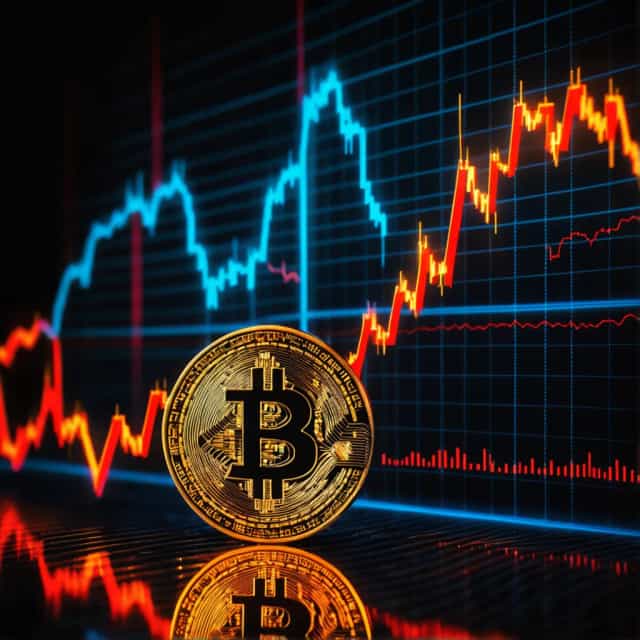
Image source: Block Media
KOSPI Index Climbs Above 3,880 Amid Optimism in Global Markets and Earnings Prospects
The KOSPI Index broke the 3,880 barrier on October 22, continuing its bullish momentum fueled by declining global uncertainties and favorable earnings season outlooks. This surge has been driven by factors such as prospects for resolving the U.S. government shutdown, easing U.S.-China trade tensions, and stabilizing regional banking concerns. A significant highlight was SK Hynix reaching a milestone by surpassing the 500,000 KRW mark during early trading.
At 9:27 a.m. KST, the KOSPI traded at 3,880.18, marking an increase of 65.49 points (1.72%) compared to the previous session’s closing. The index opened strong at 3,851.01, up 36.32 points (0.95%) from its earlier close of 3,814.69, retaining upward momentum throughout the trading session.
Optimism Spurred by Government Resolution and Corporate Earnings
The KOSPI market saw net purchasing activity predominantly driven by retail investors and foreign players, who bought shares worth 64.9 billion KRW and 52.1 billion KRW, respectively. Institutional investors, however, divested 75.3 billion KRW worth of stocks.
Market analyst Han Ji-young from Kiwoom Securities expressed confidence in the trajectory of easing global uncertainties: “Signs of progress toward ending the U.S. government shutdown, together with diminishing trade frictions between the U.S. and China, have bolstered market sentiment. Furthermore, anticipation surrounding corporate earnings has injected additional optimism.”
Han elaborated, “Should the U.S. federal government resume operations soon, it would dispel significant uncertainty while opening the door to enhanced fiscal spending. Historically, following similar government shutdown resolutions, the S&P 500 has demonstrated average growth of 6.6% over the subsequent 100 days—suggesting that equity markets globally could follow suit.”
Sector Performance: Broad Gains Despite Real Estate Dip
On October 22, most KOSPI sectors recorded gains except for real estate, which dipped marginally (-0.15%). Leading sectors included utilities (+5.36%), construction (+3.46%), and transportation equipment and parts (+3.40%).
Major KOSPI stocks performed well overall, with the exception of LG Energy Solution, which remained flat. Samsung Electronics reached an all-time high at 99,200 KRW, rising 1.12%, while SK Hynix soared 2.99%, exceeding 500,000 KRW—a landmark achievement. Other notable gainers were HD Hyundai Heavy Industries (+6.45%) and Hyundai Motor (+5.04%).
On the KOSDAQ side, the index climbed 2.87 points (0.33%) to 878.64. It opened higher at 881.53, marking a 5.76-point (0.66%) increase compared to the previous session's close at 875.77. Upward momentum continued throughout the trading day.
In the KOSDAQ market, domestic retail investors were net purchasers, acquiring stocks worth 160.9 billion KRW. Foreign investors and institutional players, however, engaged in net selling, disposing of 121.5 billion KRW and 15.6 billion KRW worth of shares, respectively.
Expansion Beyond Semiconductors: Sector Diversification
The KOSDAQ showcased a mixed sectoral performance. Metals (+1.80%), transportation equipment and parts (+1.15%), and pharmaceuticals (+1.11%) led gains, whereas textiles and apparel (-0.40%), financials (-0.33%), and construction (-0.03%) lagged behind.
Notable stock movements in the KOSDAQ included HLB, which soared 11.77%, and Peptron, up 0.18%. On the flip side, major decliners included EcoPro BM (-1.93%), EcoPro (-1.93%), and Rainbow Robotics (-1.13%).
According to Han Ji-young, “As external pressures subside, markets are increasingly zeroing in on corporate earnings reports from big tech firms and the upcoming Federal Open Market Committee (FOMC) meeting later this month. U.S. earnings forecasts are improving, boosting hopes for earnings beats across sectors.”
He added, “While profit-taking pressure is a natural response to recent record highs, the convergence of reduced global uncertainty with earnings optimism is likely to sustain the bullish outlook for South Korea’s equity markets. Notably, unlike the semiconductor-centric rally observed in September, the current surge spans across broader industries like secondary batteries, automotive electrical equipment, and brokerages.”
Korean Won Weakens Against U.S. Dollar
In currency trading, the Korean won opened at 1,421.0 KRW against the U.S. dollar on October 22, weakening by 1.8 KRW from the prior session's closing value of 1,419.2 KRW.










